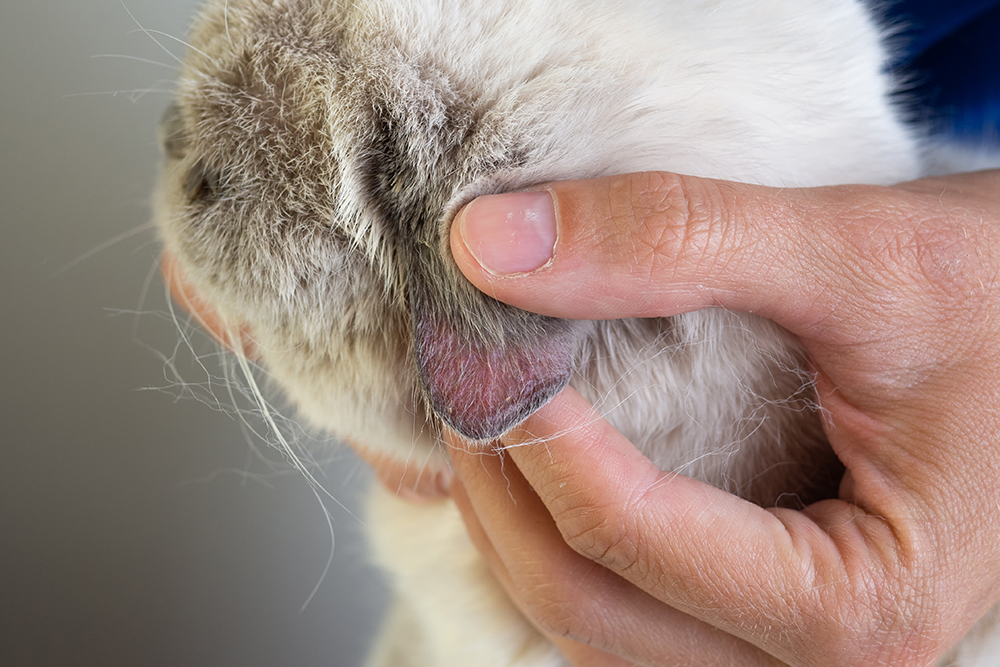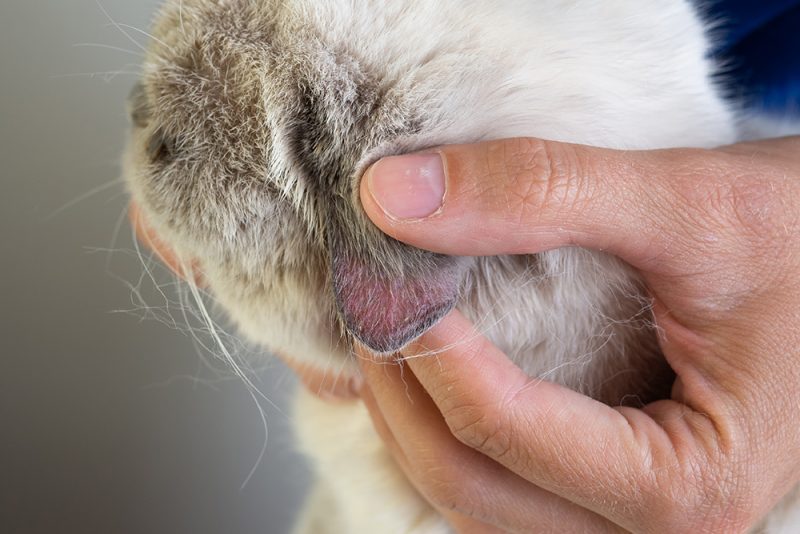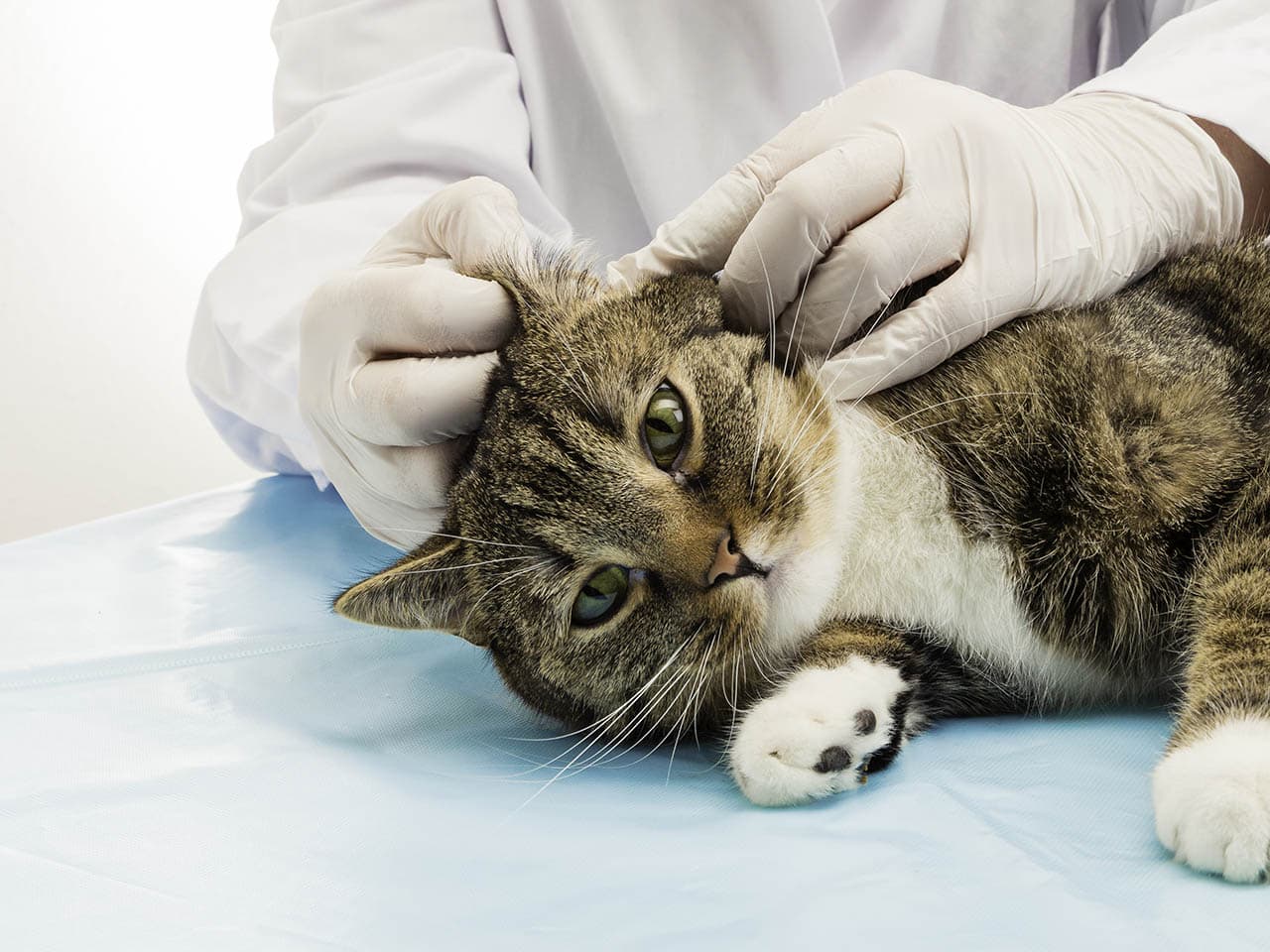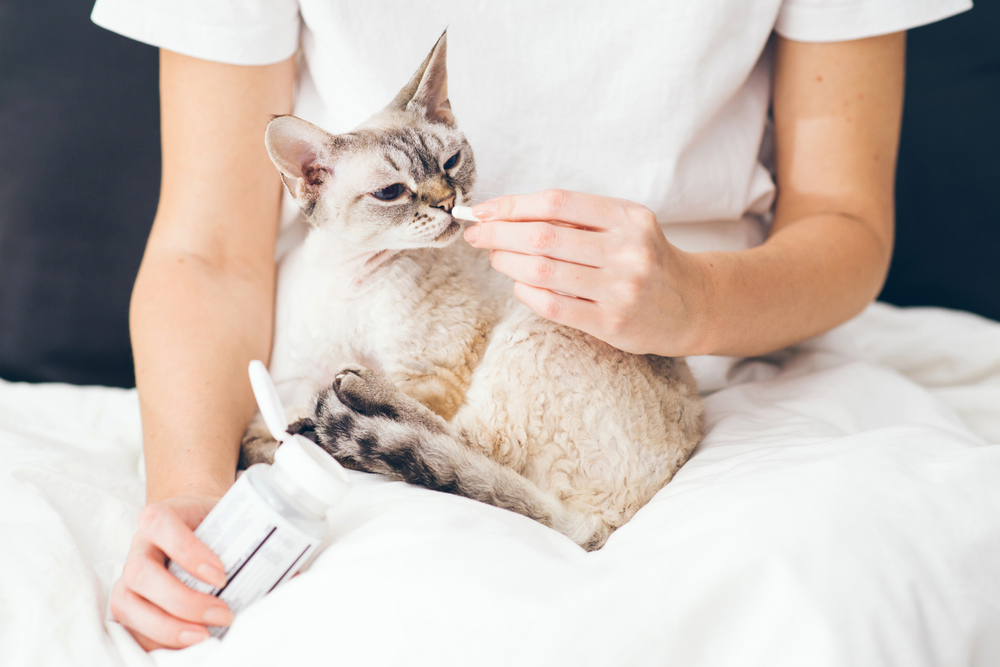Click to Skip Ahead
Cats can get sores or scabs on their ears from numerous different things. Sometimes it’s an injury to the ear, or potentially cancer. Other times the sores may develop from your cat scratching and rubbing at the ears themselves. In this article we’ll discuss why you can see sores on your cat’s ears, and what you may be able to do for treatment and prevention of these wounds. As a heads up, this article won’t be able to cover all of the possible causes of cat ear sores, but we will try to touch on the most common reasons.
What Are Cat Ear Sores?
For the purpose of this article, we’ll define ear sores in the cat as any wound, crusts, scabs, or irritation to the ear pinna, or outside of the ears. The ear pinna is the part of the ear that is visible, and most of the time stands upright in cats. Each ear has an outside pinna (which is typically covered in fur), and an inside of the pinna (which is cartilage). We won’t focus on conditions that can affect the ear canal itself, though sometimes the two can be related.
When a veterinarian hears the word “sore”, they often think of an ulcerated, open and/or scabbed wound of some sort. Sometimes the sore is ulcerated and draining, completely open to the outside environment. Other times there are scabs and/or crusts covering the sore. However, by definition, a sore is a broken patch of skin, or in the case of the inner ear pinna, it may be a broken open portion of cartilage. A sore does not denote just swelling and/or a mass, though both can occur at the same time.
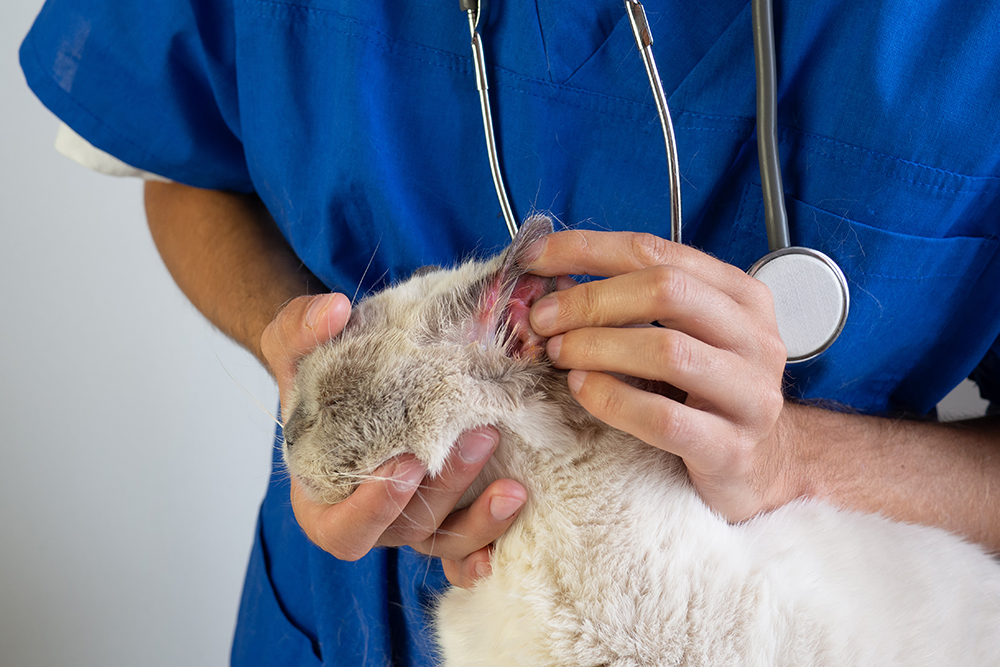
What Are the Signs of Cat Ear Sores?
At first, you may notice your cat holding their ears down instead of having them normally stand straight up. Your cat may also be scratching at one or both of the ears, constantly trying to rub their head on the furniture and/or along the ground. Depending on your cat’s temperament, they may become angry or upset when you try to pet their head and/or scratch at their ears, or they may avoid human contact in general. If only one of your cat’s ears is bothering them, they may tilt their head to the affected side or act uncomfortable.
Sometimes the problem starts within the ear canal itself, and you may not notice anything abnormal externally. You may notice dark and/or malodorous discharge and/or debris within the ear canal itself. The pinna may at first appear normal. However, the pinna may also develop crusts, hair loss, scabs, swelling, and even discharge. Open sores may appear like ulcers, or red, oozing, skin. Sometimes the ear may become swollen, either with a focal area of swelling or the entire ear puffs up like a pillow. No matter the appearance, your cat will likely show signs of being uncomfortable and often do not want that ear looked at or touched.
The 7 Possible Causes of Cat Ear Sores?
While the following is not an all-inclusive list, these are some of the more common reasons we may see cats develop sores on their ear(s).
1. Underlying Ear Infection
If your cat has an ear infection – typically caused by yeast and/or bacteria – then they may get sores on their ears from scratching at their irritated ears.
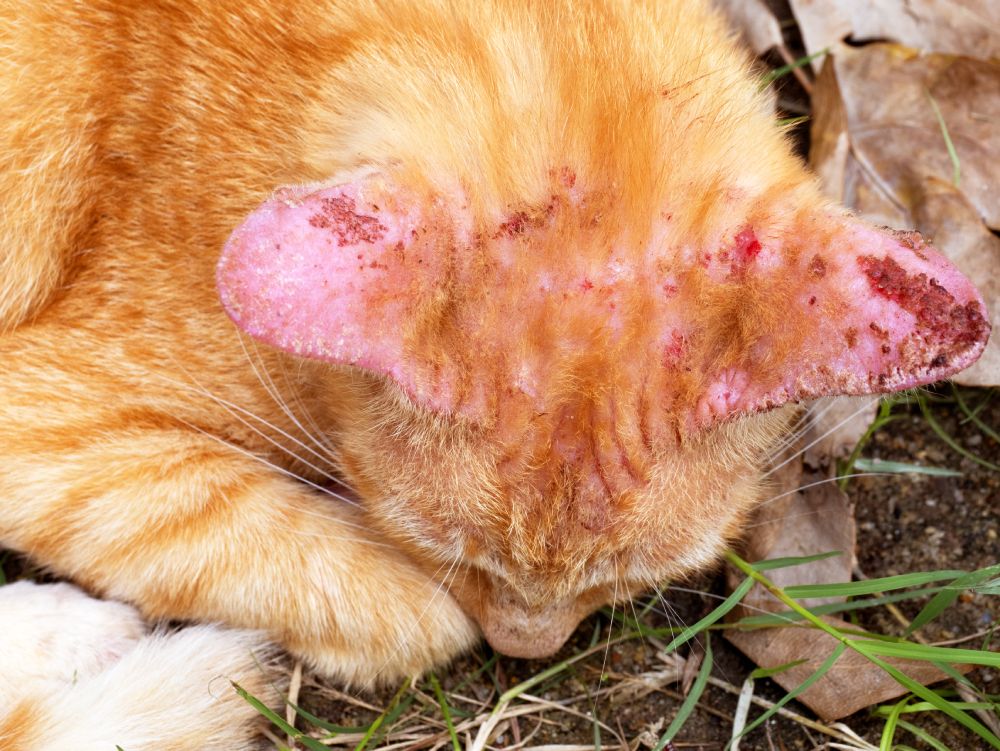
2. Cat and/or Other Animal Bites
If you have multiple cats in the house, or your cat is indoor/outdoor, then they may be prone to getting bitten on the ears. Any type of animal bite can cause wounds and sores to develop.
3. Ear Mites
Ear mites are parasites that live and breed within the ear wax. The mites will cause a very thick, dark discharge to develop within the ear canal itself. Similar to the ear infection, your cat will self-traumatize their ear(s) from the itchiness.
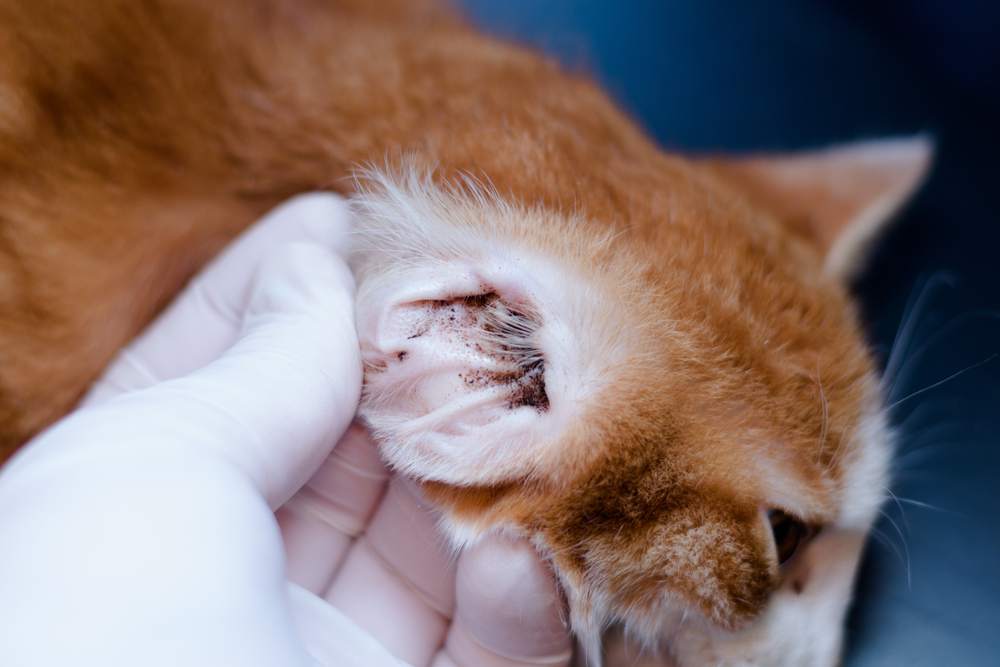
4. Other External Trauma
Aside from bite wounds, cats can also get wounds on their ears from bushes, fences, other plants in the yard, going underneath furniture, etc. Any external trauma to the ear can cause open wounds and sores.
5. Fleas
Fleas are extremely irritating, causing itching, redness, and skin irritation from flea bites. Add self-trauma to that, and your cat may have ear sores from flea infestation.

6. Allergies
Allergies in cats often manifests as itchy skin. Your cat may have allergies to their food, things in the environment, fleas, or things they contact. All of these may cause irritation to the skin, and your cat may also further cause damage to the skin by itching and scratching.
7. Cancer
There are certain cancers that will develop on the skin or underneath. Depending on the type of cancer, the tumor itself may rupture open and ulcerate, causing a sore. Other times it may cause the ear to be itchy and/or sore, and your cat may then scratch the tumor, causing the sore to develop.

How Do I Care for and Prevent Ear Sores?
First and foremost, if your cat is rubbing and scratching at their ears, you should place an e-collar on them so that they can’t irritate the ears even more. There are lots of options out there! Even cute food and character shaped e-collars that will also make your cat selfie-ready. These should be left on at all times, even when your cat is eating, so that they do not cause more trauma to the ears.
Second, you want to get your cat to a veterinarian so an appropriate diagnosis can be made. The reason for this is that treatment varies greatly depending on the cause. For example, many owners will make the mistake of buying an OTC “ear mite treatment” and use it for weeks with no improvement. And it could be because the cat actually has a bacterial ear infection. Sometimes cancerous masses need to be surgically removed or else the sore will never heal.
Sometimes topical medications are needed. This means that medication needs to be applied directly to the wound, and/or within the ear to treat the underlying problem. Other times your cat may need oral medications, such as steroids or antibiotics, to clear up any infected sores. Oftentimes the veterinarian will also want to clip the hair around the sore to help clean and dry the area so it can heal easier.
As I typically recommend, no over-the-counter (OTC) flea preventatives, topical creams/ointments/salves, essential oils, or sprays should be used. You should only use recommended and prescribed products from your veterinarian. This is because many OTC products are toxic to cats, especially those containing essential oils and scents. Some topical products can be very toxic if your cat is able to lick them off, or wipe their paw on the wound and then lick their paw. You also do not want any medications that aren’t prescribed dripping into the eye(s) causing irritation and/or ulcers.
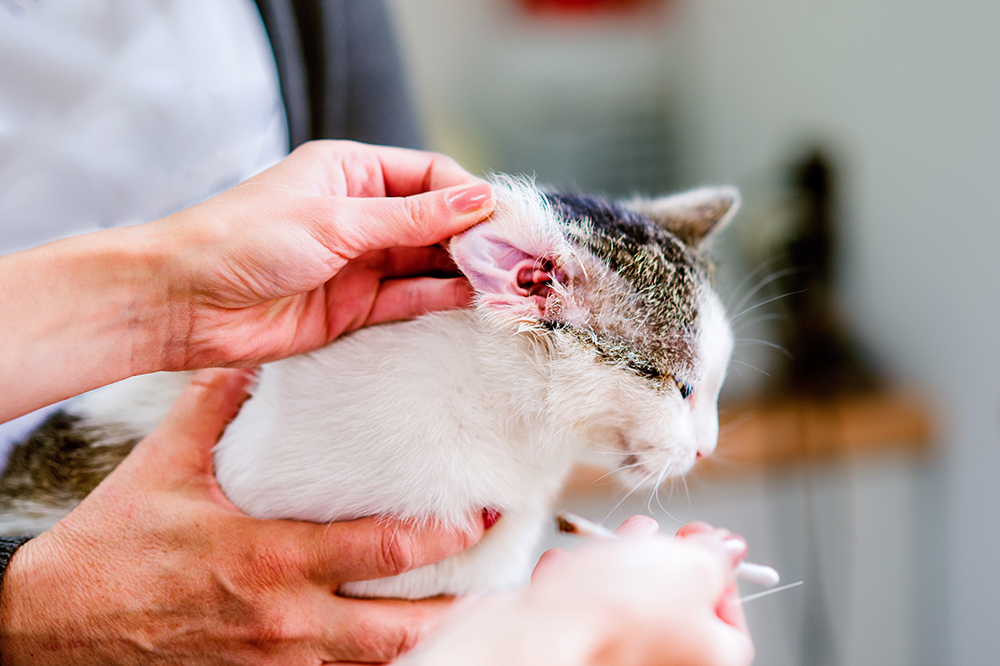
Frequently Asked Questions (FAQ)
Will the Sores Come Back?
This completely depends on what the cause is. Oftentimes the underlying disease needs to be treated (e.g. fleas, ear infection) in order for the sores to resolve. If appropriate treatment either isn’t pursued, or isn’t done long-term, then the sores may come back.
What If the Ear Sores Are from Cancer?
Your veterinarian should be able to work-up your cat and determine a cause, even cancer. Treatment will depend on the type of cancer. Some cancers can be surgically removed, others may be treated with oral medications. The first step is knowing what type of cancer your cat has so that an appropriate treatment plan can be made.
Conclusion
Ear sores on cats can have many different causes. Sometimes there is a wound on the ear pinna itself. Other times there is a disease process within the ear canal or associated with the skin, and the sores develop because the cat is scratching and self-traumatizing the ear(s). The most important thing you can do at home is to prevent your cat from hurting their ear more by purchasing and placing an e-collar on them. There are many good options both in stores and online. A diagnosis by a veterinarian should then be made so that appropriate treatment can be recommended. Most sores will resolve with treatment, but the underlying source needs to be addressed. OTC medications should never be used as they can be toxic to your cat.
Featured Image Credit: Yekatseryna Netuk, Shutterstock

